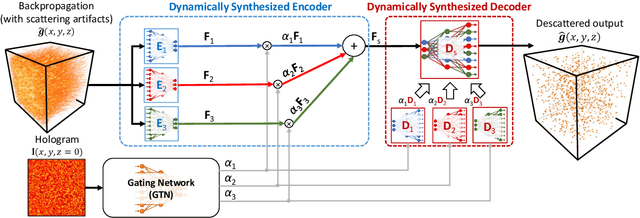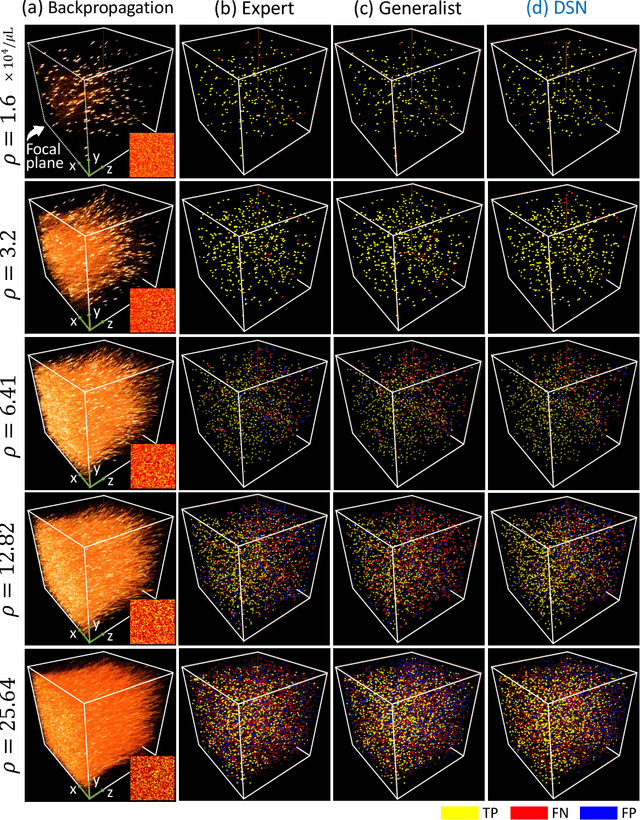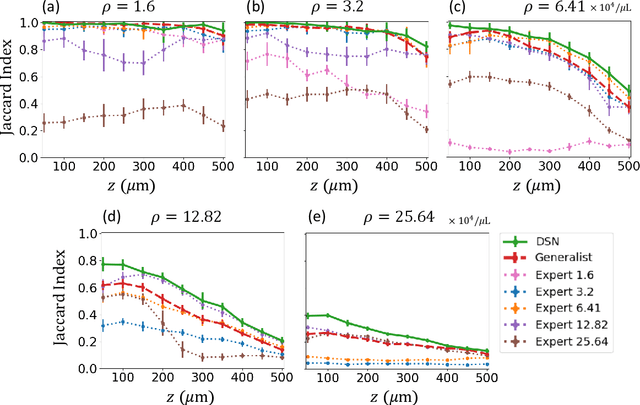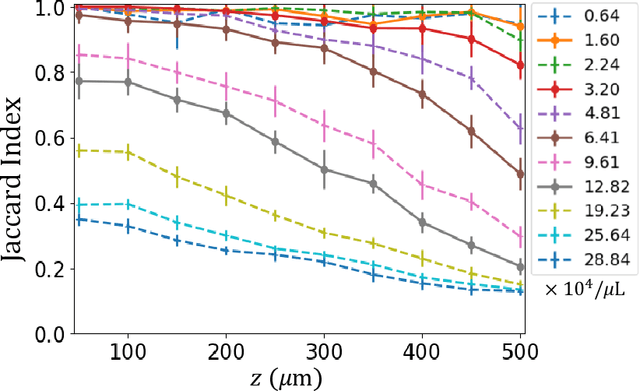Adaptive 3D descattering with a dynamic synthesis network
Paper and Code
Jul 01, 2021



Deep learning has been broadly applied to imaging in scattering applications. A common framework is to train a "descattering" neural network for image recovery by removing scattering artifacts. To achieve the best results on a broad spectrum of scattering conditions, individual "expert" networks have to be trained for each condition. However, the performance of the expert sharply degrades when the scattering level at the testing time differs from the training. An alternative approach is to train a "generalist" network using data from a variety of scattering conditions. However, the generalist generally suffers from worse performance as compared to the expert trained for each scattering condition. Here, we develop a drastically different approach, termed dynamic synthesis network (DSN), that can dynamically adjust the model weights and adapt to different scattering conditions. The adaptability is achieved by a novel architecture that enables dynamically synthesizing a network by blending multiple experts using a gating network. Notably, our DSN adaptively removes scattering artifacts across a continuum of scattering conditions regardless of whether the condition has been used for the training, and consistently outperforms the generalist. By training the DSN entirely on a multiple-scattering simulator, we experimentally demonstrate the network's adaptability and robustness for 3D descattering in holographic 3D particle imaging. We expect the same concept can be adapted to many other imaging applications, such as denoising, and imaging through scattering media. Broadly, our dynamic synthesis framework opens up a new paradigm for designing highly adaptive deep learning and computational imaging techniques.
 Add to Chrome
Add to Chrome Add to Firefox
Add to Firefox Add to Edge
Add to Edge